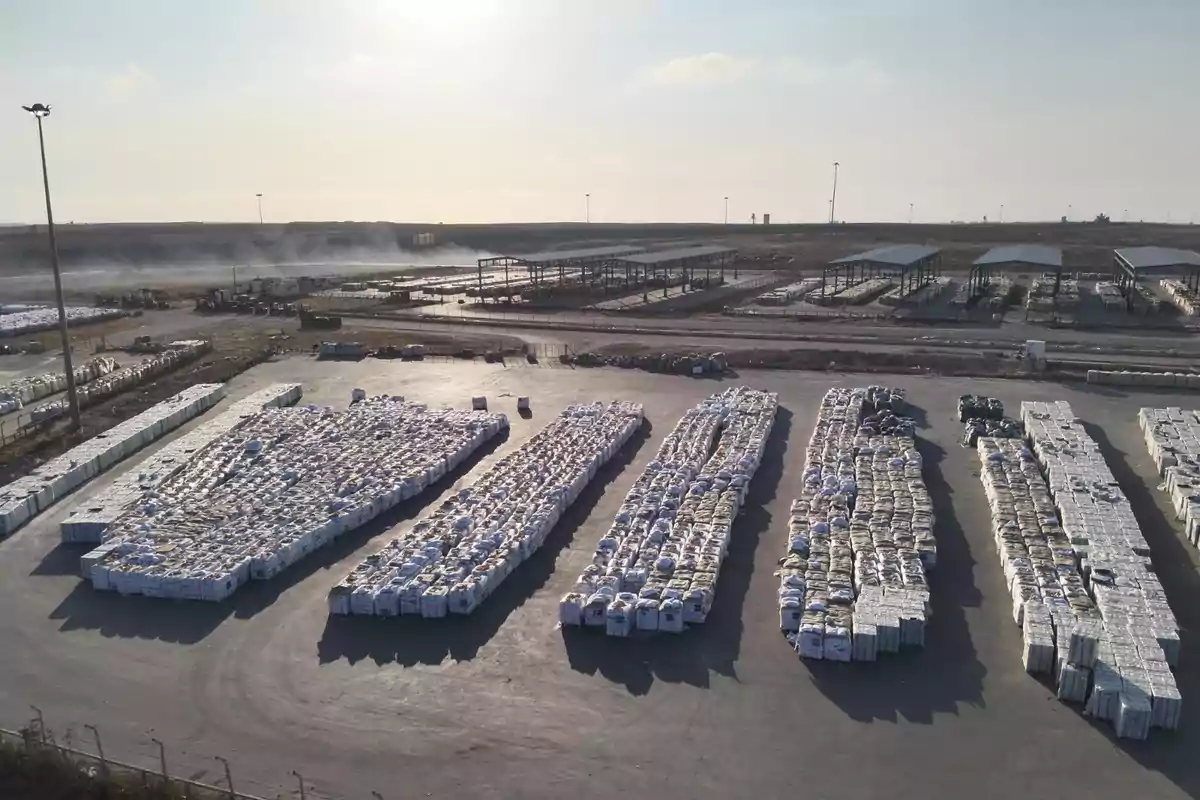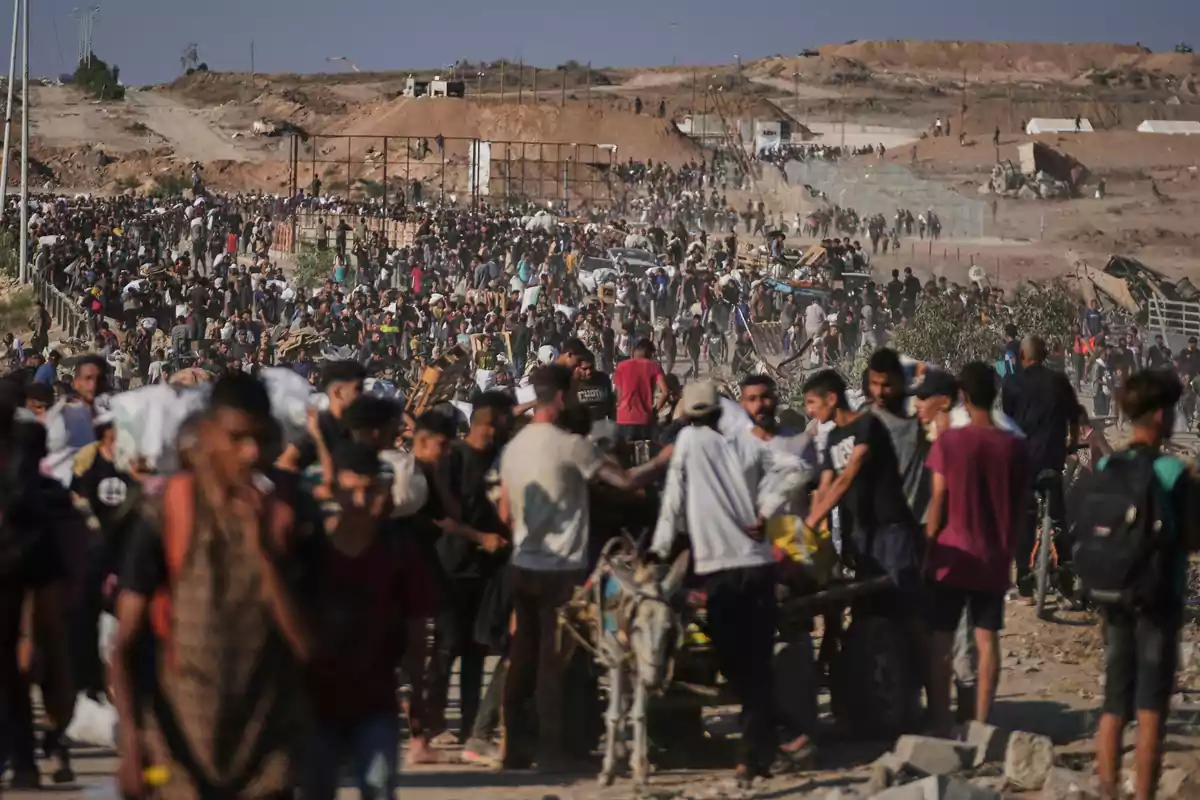
The myth falls: there is plenty of food in Gaza, but the UN is preventing distribution
There are 950 trucks loaded with food and supplies waiting to be picked up by the United Nations
The Israeli government denied the allegations of "famine" in the Gaza Strip by stating it allowed the entry of food, but the UN is hindering distribution.
"As of today, we haven't identified signs of famine," the official said in a briefing with journalists under condition of anonymity. "Measures must be taken to stabilize the humanitarian situation, but the main responsibility for the bottleneck in aid delivery doesn't fall on Israel."
The official pointed directly at United Nations agencies, which he accused of neither removing nor distributing the aid that is already piled up on the Palestinian side of the Kerem Shalom and Zikim crossings.
According to data from the Coordinator of Government Activities in the Territories (COGAT), about 950 trucks loaded with food and supplies are waiting to be picked up by the UN. "That amount would be enough to supply Gaza for at least two and a half weeks," the official emphasized.

Israel, through COGAT — an agency of the Ministry of Defense responsible for coordinating civil assistance to Gaza — has kept the border crossings open and hasn't blocked the entry of aid. However, according to the official, the real problem lies in internal distribution within Gaza, not in supply.
"The entry of aid has been allowed. The problem is that it isn't moving beyond the crossings. In recent meetings with UN officials, we agreed to distribute between 70 and 80 trucks daily. But yesterday, for example, only 30 were picked up," the Israeli representative lamented.
The UN, which has sided with the terrorists, claims that conditions inside Gaza are extremely dangerous, and accuses Israel of obstructing transfers. It has also protested because some of its convoys have been targeted by the Israeli army when they haven't coordinated their itinerary in advance, as required by Israeli security protocol.
Israel responds that many of the UN's demands are unacceptable from a security standpoint. Among them are allowing Hamas police officers to escort convoys or the entry of communication equipment that could end up in the hands of the terrorist group.
"We're willing to cooperate, but we're not going to put our citizens' security at risk or legitimize a terrorist organization like Hamas," the official insisted.
More posts: